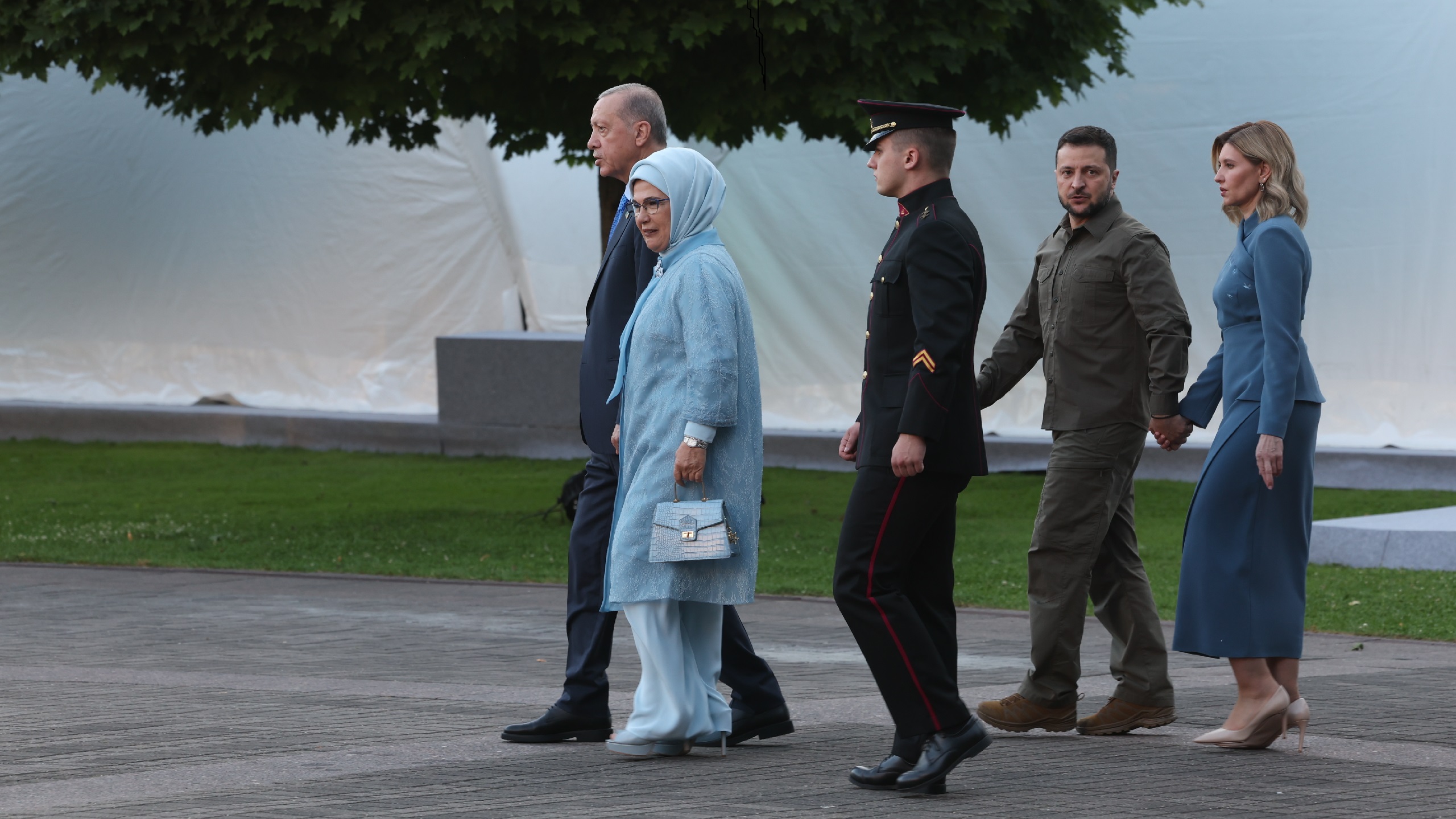Erdogan Backs Ukraine’s NATO Bid: Balancing Act in the Eurasian Power Struggle
Turkey’s attempt to remain neutral yields results, for now
Turkey’s President Recep Tayyip Erdoğan on Saturday said Ukraine was entitled to join NATO. He made his comment after meeting with Ukraine’s President Volodymyr Zelenskyy in Istanbul.
Erdoğan’s remark may have angered Russia, but experts say the Kremlin will not rupture its ties to Ankara. Isolated by sanctions, Russia needs Turkey as a link to Ukraine and the West.
Without a doubt, Ukraine deserves to be in NATO
Zelenskyy’s meeting with the Turkish leader was part of his tour of NATO countries leading up to this week’s alliance summit in Lithuania. Zelenskyy asked NATO leaders to support his bid to join the alliance, and Erdoğan obliged. “Without a doubt, Ukraine deserves to be in NATO,” the Turkish leader said.
Russia strongly opposes Kyiv’s entry into NATO. Although the Kremlin did not react to Erdoğan’s statement, it did say the next day that Turkey has maintained a “fair and balanced stance” toward the Russia-Ukraine war.
Turkey has been one of the most important mediators between Russia and Ukraine since the war began in early 2022. Together with the UN, Turkey helped broker a deal allowing Ukraine to export immense quantities of wheat through the Black Sea, despite the presence of Russian naval forces, alleviating a global food crisis. That deal is set to expire next week. Turkey has also mediated between the two countries on other issues, including prisoners and energy exports.
“The Kremlin might not be happy with Erdoğan’s statement, but I do not think Moscow was shocked,” Turgut Kerem Tuncel, a senior analyst with the Ankara-based Center for Eurasian Studies, told The Media Line.
This holiday season, give to:
Truth and understanding
The Media Line's intrepid correspondents are in Israel, Gaza, Lebanon, Syria and Pakistan providing first-person reporting.
They all said they cover it.
We see it.
We report with just one agenda: the truth.


“I do not expect any significant reaction from Moscow,” Tuncel said, noting that Russia cannot afford tensions with Turkey when it is already internationally isolated. Turkey, Tuncel pointed out, is the only NATO country Russia can communicate and cooperate with.
Turkey’s support for Ukraine’s NATO membership is a message to Western countries that helping Ukraine is necessary
Mustafa Metin Kaşlılar, vice president of the Turkish Foreign Policy Research Center, said Erdoğan likely hoped to persuade other NATO countries to approve Kyiv’s bid for membership.
“Turkey’s support for Ukraine’s NATO membership is a message to Western countries that helping Ukraine is necessary,” Kaşlılar said.
Mustafa Üren, a Eurasian specialist, noted that following Erdoğan’s Ukraine statement, the Turkish leader also welcomed an upcoming August visit by Russian President Vladimir Putin.
If Putin does come to Turkey, Üren said, the Russian leader “will have visited a NATO country for the first time since the war began.”
By supporting Ukraine’s NATO bid while inviting Putin to visit, Turkey demonstrates its determination to maintain strong ties with both countries.
Maintaining good relations with Ukraine and Russia is in the Turkish national interest, Tuncel said, as Turkey shares a border with each.
Russia is an essential player in the Turkish economy, particularly in the energy sector, while Turkish-Ukrainian cooperation on defense production is also vital. In addition, Tuncel said, “An independent, stable, strong, friendly, and sovereign Ukraine is important for Turkey’s Black Sea security.”
Turkey’s stance is also shaped by the country’s long-standing Black Sea policy, which opposes any attempt to destabilize the area.
Tuncel argued that Turkey’s ability to communicate with Russia and the West is “valuable to everyone.” In time, Turkey might even help end the war through negotiations.
Still, Üren believes there is increasing pressure on Ankara to pick a side. If Turkey abandons neutrality, he said, this will eliminate “the safety valve” Turkey now provides between the West, Ukraine, and Russia.

